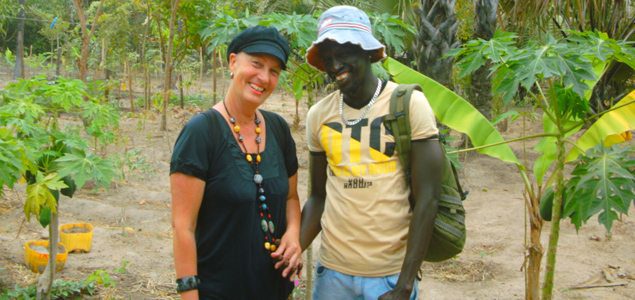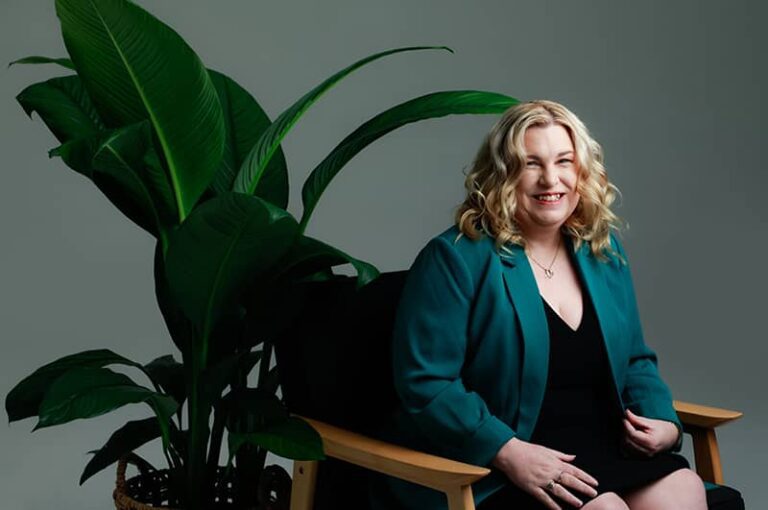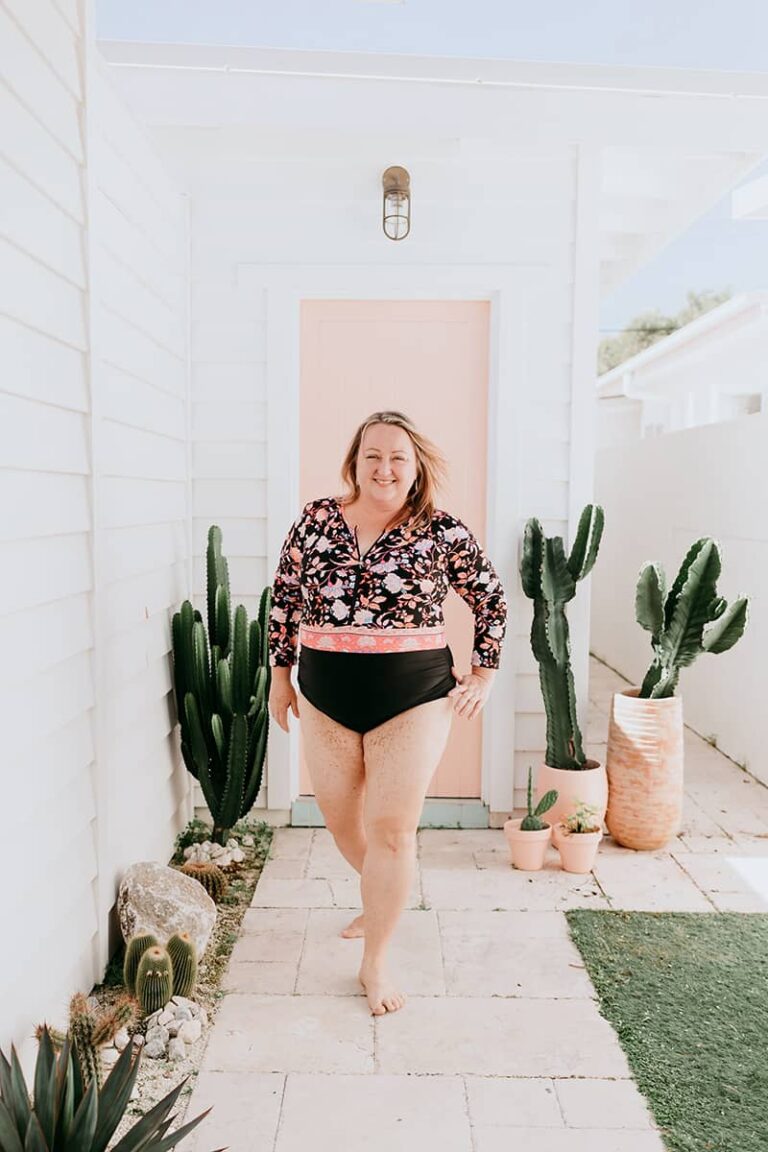I was in my late 40s, leading a life in Sydney many Australian women may envy, when I decided to sell my house, put all of my belongings in storage, and move to the smallest country on the African continent.
I had a successful job as a filmmaker and artist. I owned a beautiful three-story terrace house in a fashionable inner city suburb and I always loved shopping for designer objects. I loved fashion and good food, buying gourmet groceries at David Jones food hall, but I reached a point where I realised that accumulating more luxuries was not going to make me any happier. I wasn’t an unhappy person, but I had a growing feeling that my life wasn’t challenging or meaningful enough.
I was also concerned about my environmental footprint, as a single person living in a three-story terrace. Meditation and a long-standing interest in Buddhist philosophy really helped me clarify my feelings.
I lost the smidgen of fear I had at the back of my mind about such a drastic lifestyle change. I had no children, my friends were going to survive without me, and my community activist role was winding up, so there was nothing to stop me from following my heart.
That said I could not have imagined where my heart was about to lead me or just how drastically my life would change. A chain of coincidences and an interest in drumming, led me to the Gunjur Beach Lodge in The Gambia to experience African village life and learn how to drum.
Gunjur is a small fishing village with little infrastructure. Swimming in the beautiful ocean one morning, I noticed a local man tirelessly carrying a bucket of water from the well of the Lodge to a nearby plot of land.
I asked him what he was doing and if he had another bucket so that I could help him. He said he only owned one bucket. His name was Abibu Njie and he was taking water to his garden. He also had a woodcarving workshop he was building. I was very impressed with how successful he was at growing flowers and trees in the sandy soil. I thought his woodcarvings were beautiful.
Towards the end of my first visit to The Gambia in 2007, I accepted an offer from the Gunjur Fisheries Community to develop land into an art gallery and restaurant. I employed Abibu to help me. Working side by side in the garden and planning the art gallery together, Abibu and I grew closer, and our creative working relationship became a loving and tender partnership.
One of my first contributions to the fishing community was to pay for a well to be dug. Now the whole community had access to clean drinking water. Abibu often points out that every time a neighbour fetches water at our well it is a blessing for us. I like the word “blessing” and since living in The Gambia I have learned first-hand the meaning of the saying, “there is no life without water”.
Being Abibu’s partner has given me an instant family. His step-mother, Alamutta and his father, Iderissa, have both warmly accepted me into the family. I have found that Abibu’s family is very open-minded and there has been no pressure on me to change my religious or other beliefs. Now at 51, I am considered an old woman and the elderly are very respected in Gambian culture.
One of Abibu’s and my favourite activities when we visit the family is to create fun with the kids. Abibu has a very positive effect on children. They just love him. I especially enjoy spending time with Doerthe buntau (“buntau” meaning “small”), a little girl born in the Njie family who has been named after me in my honour.
This incredible journey has involved me becoming part of a family and community in an Islamic culture.
I think what has kept us together over the past six years is facing the many challenges that arise from the vast cultural and economic differences between us.
Abibu and I live together in our simple, comfortable home. We have a large and abundant garden, and are working on becoming self-sufficient on our land. In addition I have helped Abibu establish his business Njie Sustainable Enterprises, comprising a photographic studio, a restaurant and a small shop that sells home-grown produce and other things such as oil, rice and sugar by the cup.
Abibu and I take pleasure in supporting each other’s growth as human beings and inspire each other in our artistic endeavors.
Abibu echoes my sentiments as he has told me: “since I met Doerthe, my world has completely changed. I was once a very poor man from a rural family engaged in subsistence farming. Now new opportunities are opening up for me to continue my artistic development.”
Abibu is a very sensitive man with many skills. He can build anything and he is also good at performing many traditional women’s jobs, because his mum was chronically ill when the children were young. He used to shop, wash and cook for the family. In our home, Abibu and I share chores. One day at the market, much to the amusement of other market women, an old woman stopped Abibu and asked him to find her a man like himself.
I guess men like Abibu are not that common in The Gambia. Perhaps they are not so common anywhere. To me, he is one in a million.







